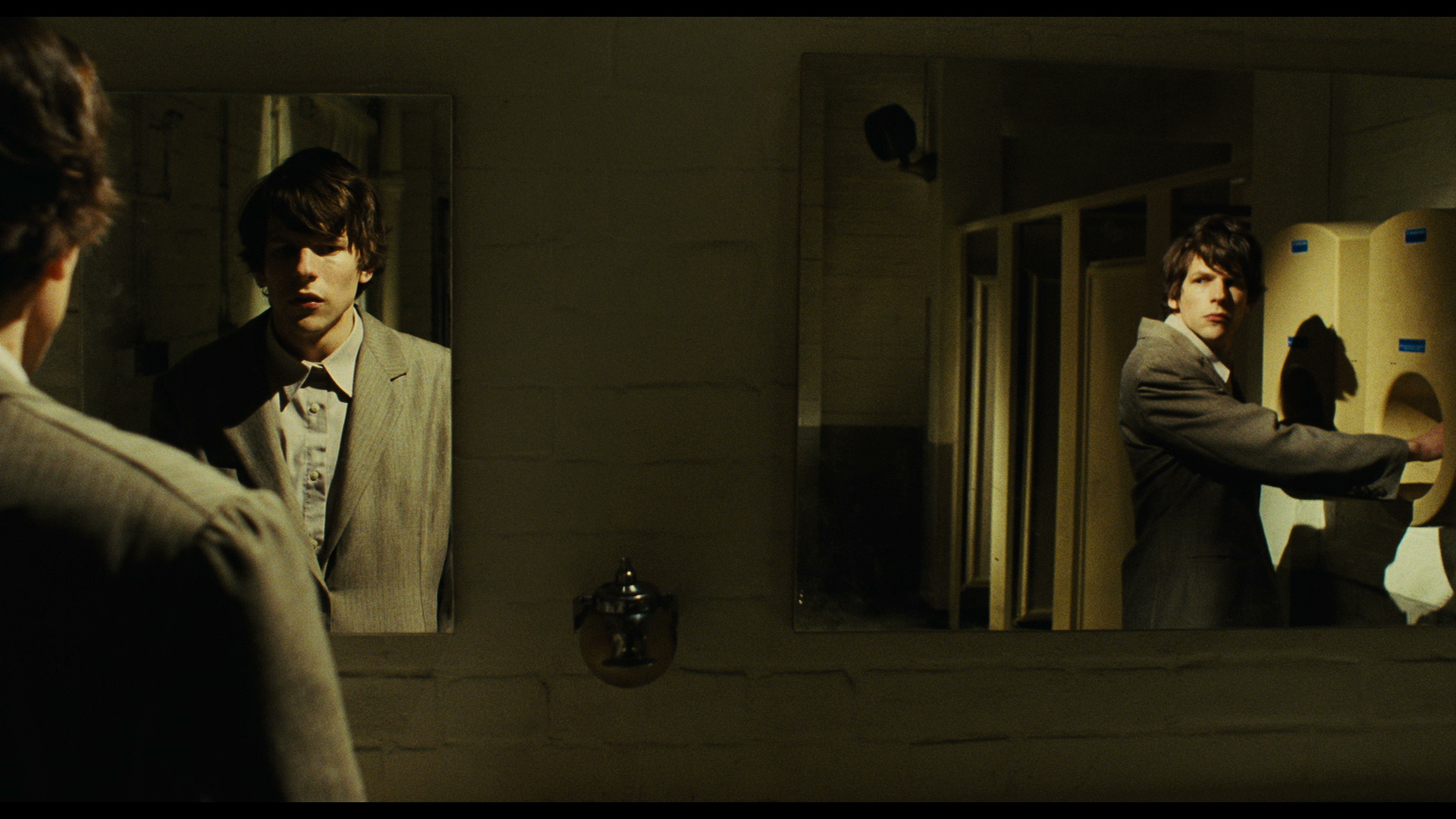There were plenty of Jesse Eisenbergs and Jake Gyllenhaals and doppelganger-centered film adaptations to go around at Toronto. Richard Ayoade’s The Double, loosely based on the Fyodor Dostoevsky novella, pits Eisenberg against Eisenberg, his Mark Zuckerberg smartass squaring off against his Michael Cera nebbish. Denis Villeneuve’s Enemy, adapted from José Saramago’sThe Double, features a double dose of Gyllenhaal as a disheveled history professor and a cocky actor, exact replicas of each other, right down to birthmarks and scars. Both films are unsurprisingly about male anxiety, a subject that can now be firmly deemed a preoccupation for Ayoade, whose Submarine explored similar territory.
With The Double, Ayoade applies his dark British vein of comedy to a Brazil-like dystopia. In his windowless, claustrophobic workplace, Simon James (Eisenberg) has to fight daily for a small iota of recognition from his boss, co-workers, and even the security guard who can never remember him, even though Simon’s worked there for years. Bothersome printers and elevators, given an antiquated look, break down in front of Simon as if from a lack of recognition of Simon’s existence. His crush, Hannah (Mia Wasikowska), a self-absorbed girl-next-door type, is oblivious to Simon’s meager attempts at courting and falls in love with his alter ego, James Simon, as does the rest of the world—pushing Simon into a believably depressed state verging on suicide. Ayoade’s chief accomplishment in The Double is a remarkably sharper display of his self-deprecating humor, a perfect fit for Eisenberg’s natural garrulous cadence. Ayoade’s comedy also naturally suits the surreal tone of the narrative, and he’s adept at toning down the wit when the film becomes more somber and focused on the psychology of its main characters.
While both films share some similarities in material, they couldn’t be more different stylistically. Where The Double excels in quickly establishing an asymmetrical rhythm that pulls the viewer into its quirky, dark diegesis, Villeneuve seems to purposely desire alienating viewers withEnemy, which moves at a glacial pace, introducing murky, out-of-place spider symbolism into a quiet, desolate, and unnerving setting—a faceless, foggy Toronto—in which Gyllenhaal’s professor, Adam, implodes from a nervous breakdown upon meeting the smarmy Anthony, his alter ego who is quick to suggest that the two swap girlfriends for a night, leaving before Adam has a chance to say no. The one person who seems more disturbed, and also intrigued, by Anthony’s double is his pregnant partner (Sarah Gadon, in a breakout role), who comes to realize Adam’s softer personality is a calming anecdote to Anthony’s brutishness.
Enemy builds toward an intense existential boxing match between the two Jakes, then veers into complete absurdity with a befuddling surprise ending that seems to suggest, if weakly, a connection between male identity and the trap of domesticity and female power. This dubious linkage is signified with a jarring cut that’s easily one of the scariest last shots in the history of cinema. It’s even more shocking and manipulative than the ending of Villeneuve’s Incendies, because it completely kills almost everything the film has been building in the previous eightysomething minutes, with its brilliant appropriation of the uniquely Canadian breed of eerie suspense (a la Atom Egoyan and David Cronenberg). With Enemy, Villeneuve confidently proves he’s contemporary filmmaking’s ultimate troll.

